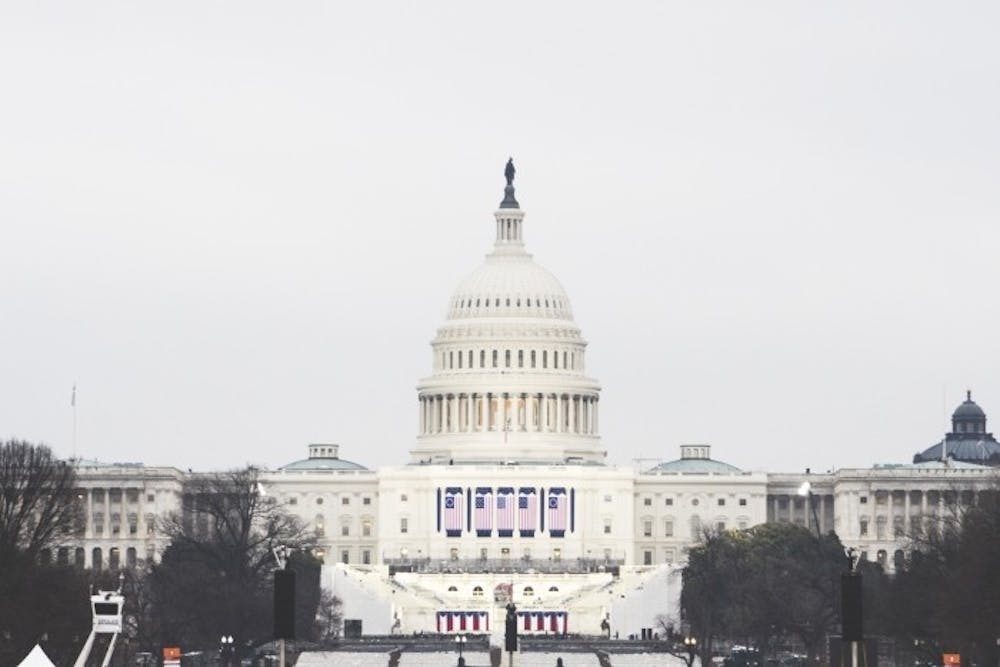
Just over a year after President Donald Trump officially was sworn in as president, the nation is preparing for what many expect to be an extremely critical midterm election season.
The 2018 midterm elections will take place Nov. 6, and party lines are already being drawn, both on Penn's campus and around the country, as Republicans and Democrats prepare to fight over control of Congress for the next two years.
To help students get involved, Penn Democrats Communication Director and College junior Jack Weisman said Penn Dems would be "phone banking and canvassing for candidates up and down the ballot, most notably in the gubernatorial and senate races, as well as competitive congressional races in the Philadelphia suburbs."
Weisman said he hopes Democrats can reclaim at least one chamber of Congress to prevent what he calls “overarchingly disastrous” Trump policies. He cited the repeated attempts to repeal the Affordable Care Act and the lack of congressional involvement in the Russia investigation as examples of such policies.
“2017 was really a year of Republicans trying to see what they could get away with,” Weisman said. “The only way to ensure the Congress is serving as a check on the president is to take it back.”
On the Republican side, President of Penn College Republicans and College Junior Ryan Snyder agreed that the consequences of these elections would primarily be legislative.
“If Republicans can ride on the economic prosperity seen over the past year and a half to two years and success from the tax bill, they can convince voters to help them maintain a majority,” Snyder said.
Looking to the future, College Republicans' focus is more on issue advocacy.
"However, later in the semester and more so in the fall, we will likely coordinate tabling, canvassing, and phone banking" he added.
Currently, Republicans hold the majority in both the Senate and the House — with 47 representatives to the Republicans' 51 in the Senate and 193 representatives to Republicans' 239 in the House. After these elections, 33 Senate seats and 435 House seats have the potential to turnover.
As for election predictions, Snyder hypothesized that Republicans would continue the trend of outperforming Democratic voter turnout in midterm elections and pull ahead.
Political Science professor Marc Meredith, whose focus of study is largely on voter decision making and the American elections, said that the outcome of this election will significantly influence whether or not the Trump presidency will have the ability to enact legislative changes.
Some of the most controversial issues set to permeate the halls of Congress include the future of healthcare policy, tax reforms, investigations into Trump's ties with Russia, and the future of the Supreme Court nominees.
Still, Weisman said that “polling looks very good” for Democrats despite it being too early for speculation.
The two could agree, however, that this election will impact the American political landscape for decades to come, and both stressed that public engagement will be of utmost importance given the stakes for both parties.
“If you’re a voter who cares about policy on either side, it’s important you go out and vote and support your candidate,” Snyder said.
The Daily Pennsylvanian is an independent, student-run newspaper. Please consider making a donation to support the coverage that shapes the University. Your generosity ensures a future of strong journalism at Penn.
Donate



